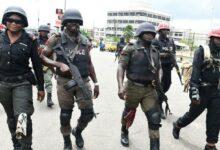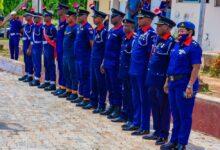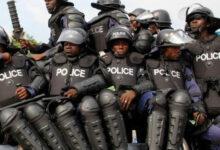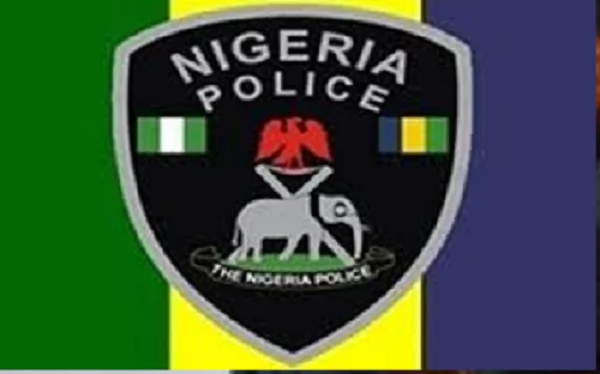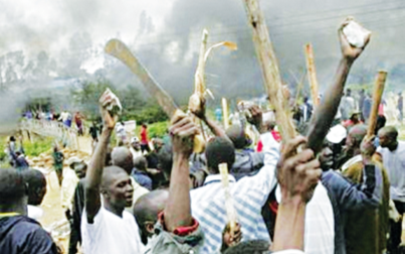Issues Affecting The Nigerian Police Force
The Nigeria police is a fundamental law agency in Nigeria. It is a very large institution which consists of 36 state commands grouped into 12 zones and 7 administrative units, with a work force of about 371,800. At the moment, there is a plan to expand the force to a personnel strength of 650,000.
The Nigerian police was founded in 1820. The force carries out the general police activities and is generally accountable for internal security.
👉 Relocate to Canada Today!
Live, Study and Work in Canada. No Payment is Required! Hurry Now click here to Apply >> Immigrate to CanadaThe Nigerian police force aid’s the prison services, custom duties and immigration. It also executes some military obligations within and outside Nigeria.
Read Also: 10 Problems of Nigerian Police and Possible Solutions
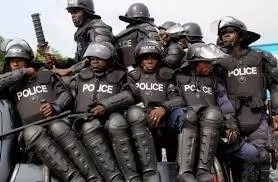
There are three government agencies that are aimed at supporting the Nigeria police force. These government agencies are:
a. The police service commission.
b. The ministry of interior.
c. The Nigeria police council.
The Roles Of The Nigeria Police Force
The Nigeria police is a fundamental law agency in Nigeria which aims at protecting the lives and properties of every citizen. The various roles of the police are listed below:
1. Prevention of Crime
Prevention of crime is one of the vital roles of the police force. The police is saddled with the responsibility of carrying out investigations in order to help foresee or anticipate an impending criminal activity as well as generate methods of curtailing such detrimental criminal activities.
👉 Relocate to Canada Today!
Live, Study and Work in Canada. No Payment is Required! Hurry Now click here to Apply >> Immigrate to Canada2. Crime Investigation
The police are also responsible for crime investigation in cases where they are unable to prevent the occurrence of a criminal activity and also in cases where a criminal event remains unsolved.
Read Also: Nigeria police salary structure 2018
3. Road Traffic Control
The police has a traffic control unit which is saddled with the responsibility of controlling road traffic in densely populated areas.
The police is tasked with the responsibility of assisting the Federal Road Safety Corps (FRSC) and other related government agencies in controlling road traffic.
4. Election Protection Duties
Due to the alarming rates of election malpractice and election violence in Nigeria. The police are therefore responsible for the orderly conduct of all forms and categories of elections into various arms of government in Nigeria.
5. Riot Control Activities
The police is saddled with the task of protecting the lives and property of citizens during cases of riot and civil unrest in any part of the country. The police is usually the first line of defence in such cases.
6. Peacekeeping Duties
The Nigeria police on several occasions has showed its prowess in peacekeeping activities within and outside the country, notable example is the Nigeria Mobile Police (MOPOL) peacekeeping activities in the DR Congo, Namibia, Angola, Cambodia among others.
7. VIP Services
The police is also saddled with the responsibility of providing security to important personalities in the country such as the President, Vice President, Senate president and other senior public servants and top government officials.
Read Also: 5 Major Functions of the Nigerian Police Force
Powers Of The Nigeria Police
1. A police officer has the power to conduct in person all prosecutions before any court whether or not the information or complaint is laid in his name. (S.23 Police Act).
2. A Police officer has the Power to arrest with or without warrant. (S.24 Police Act).
3. Power to search (S.28 Police Act).
4. Power to detain and search suspected persons (S.29 Police Act).
5. Power to take fingerprints.
6. Grant Bail of person arrested without warrant, with or without sureties, for a reasonable amount to appear before a magistrate at the day, time and place mentioned in the recognizance.
Problems Affecting The Nigeria Police Force
1. Poor Funding
This is basically a Federal government obligation. The amount of funds available to the police determines their willingness to combat crime.
In Nigeria, the government rarely makes adequate funds available to the police force. The exact amount which is appropriated to the police force are usually not released by the government and on occasions when they are released, it is either it doesn’t come on time or they are embezzled by the top guns in the force.
In 2014, president Goodluck Jonathan approved 79billion Naira out of the 1.5trillion Naira earmarked for the complete restructure of the police force.
This is a typical example of under-funding that has continuously plagued the Nigeria police force. The problem of poor funding constitutes a great menace to the growth of a country, simply because when the security situation in a country is poor, every investment in that country is liable to go down the drain.
Read Also: Nigerian Police Ranks and Salaries Structures
2. Substandard Equipment
The Nigeria police seriously suffers from lack of equipments needed for modern policing. A study in September 2007 revealed that the police had only 5,900 serviceable vehicles as against the over 30,010 acceptable vehicular needs of the police.
This shows that there is a shortfall of 24,015 vehicles. There is no way the police force can effectively function in this condition.
The same study revealed that the marine section of the police has 371 boats out of which 108 are serviceable. The Nigeria police force has 742 horses as against the recommended 2,000, this shows a shortfall of 1,258.
The Nigeria police force has 89 dogs rather than the 500 needed. As at 2011, the entire Nigeria police force had only two operational helicopters.
This is very worse when compared to the situation in the US where the New York Police Department (NYPD) alone has over 15 functional helicopters. This ugly development has seriously left the Nigeria police handicapped in terms of crime fighting.
3. Inadequate Arms And Ammunition
While the Nigeria police force still use the out dated AK47 rifle, armed bandits in Nigeria use more sophisticated weapons.
A Febuary 2008 study revealed that the Nigeria police force had 90,000 arms compared to the over 300,000 staff strength.
The Inadequacy of arms obtainable in the force has also lead to increased crime rates and deaths of police officers as they are always not able to defend themselves when confronted by armed bandits.
4. Substandard Forensic Laboratory
In Nigeria, the police owns a forensic laboratory that is short of the required standard. Coupled with the substandard and archaic equipment available in the forensic laboratory, there is a serious shortage of skilled forensic experts, this is the major reason why the police tend to hire foreign forensic experts to handle cases beyond their capability.
Read Also: The Role of Nigeria Police Force in Nation Building
5. Lack Of Close Circuit Television (Cctv) Camera
In advanced countries the nooks and crannies of a town is equipped with high definition CCTV cameras to help the police keep tabs on every activity and most especially in combating criminal activities as well as apprehending criminals.
In Nigeria, this isn’t the case. The police are not equipped with CCTV cameras, therefore combating crimes and apprehending criminals is a much more difficult task for the police as they lack gadgets to monitor real time events.
